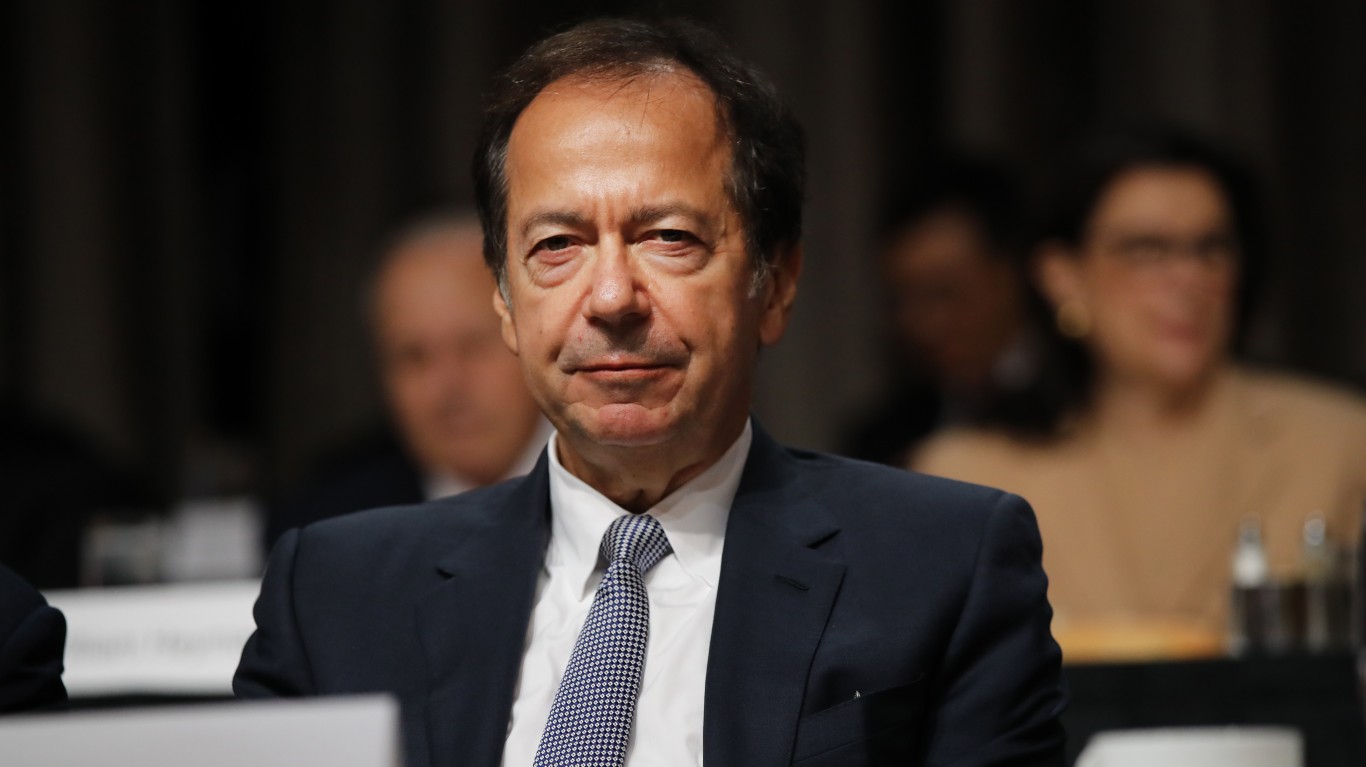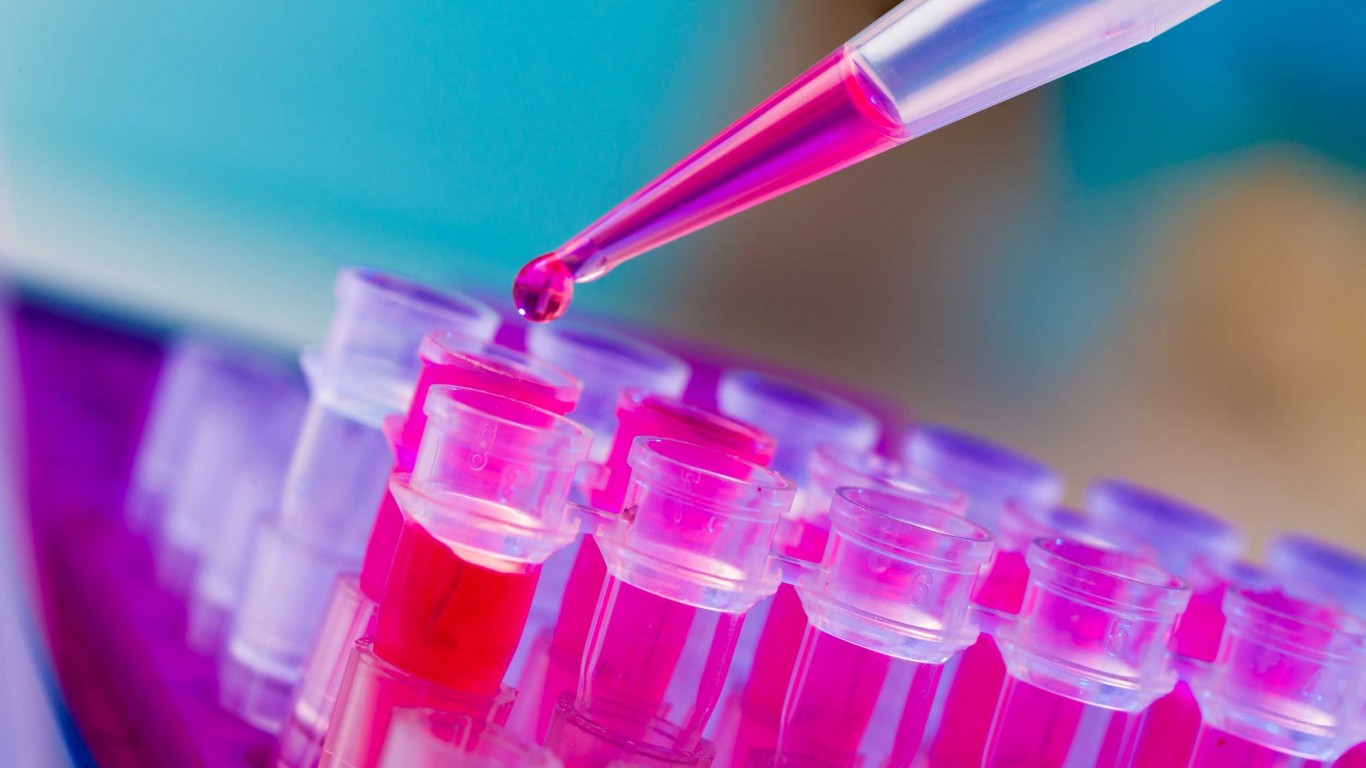
The best investment billionaire John Paulson ever made was a bet against something. He famously predicted the collapse of the U.S. housing market and made a $20 billion profit doing so.
Today, Paulson is not betting against housing, but he has a very narrow focus on what he is buying. His Paulson & Co. family office, a vehicle for the uber-rich that only invests on behalf of the individual, his family, and a select few others, owns just 16 stocks. It has $10.7 billion in assets under management.
Most of his holdings are gold stocks, like Agnico Eagle Mines (NYSE:AEM) and AngloGold Ashanti (NYSE:AU), but they only represent 3.8% and 3.6% of the portfolio. Healthcare is another area of focus and includes Bausch Health (NYSE:BHC), which accounts for 13.6% of the total.
Healthcare also happens to be where Paulson found his biggest investment and he’s been steadily building up his position in it. Madrigal Pharmaceuticals (NASDAQ:MDGL) fully accounts for 38.3% of the portfolio, some two-and-a-half times larger than his next biggest position. As the biotech’s stock is down 10% year-to-date, does that make it one to buy now for your own portfolio or, if you already own it, should you sell?
Key Points About This Article:
- John Paulson’s bet against the housing market in 2007 was his best investment ever and netted him $20 billion in profits. Today he is primarily betting on gold and healthcare
- His biggest position today is in Madrigal Pharmaceuticals (MDGL), a biotech treating liver disease. It has the only approved treatment for the condition on the market, but it comes with some caveats.
- If you’re looking for some stocks with huge potential, make sure to grab a free copy of our brand-new “The Next NVIDIA” report. It features a software stock we’re confident has 10X potential.
Staking an early lead

With a market capitalization of $4.5 billion, Madrigal Pharmaceuticals is a clinical-stage biotech pursuing novel therapeutics for non-alcoholic steatohepatitis (NASH). The condition, though, had its official name changed last year to metabolic dysfunction-associated steatohepatitis, or MASH, to better reflect the metabolic nature underpinning the liver disease. It is often associated with other health problems such as high blood pressure and type 2 diabetes.
Madrigal got Food & Drug Administration approval in March to treat MASH/NASH with Rezdiffra. It is the only drug that has been approved and recently Swedish pharmaceutical giant Novo Nordisk (NYSE:NVO) terminated its own drug development for the condition after it failed to meet its endpoints in Phase 1 trials. It has other treatments for MASH in the pipeline, however.
A large and growing opportunity
According to the FDA, approximately 6 million to 8 million people in the U.S. have NASH with moderate to advanced liver scarring, and that number is expected to rise.
That opens a door of opportunity to Madrigal. Rezdiffra is the biotech’s only drug on the market and it should see sales swiftly grow. Revenue came in at $14.6 million in the second quarter. At the end of June, Madrigal said the therapy was in place for more than 50% of the commercial lives covered by health insurance in the U.S., and its goal is to achieve 80% coverage. Rezdiffra is also under consideration for use in Europe and a decision is expected by mid-2025. If approved, it would also be the only treatment for MASH there as well.
The biotech estimates there are 1.5 million potential patients in the U.S., a third of which have moderate to advanced liver fibrosis. During the drug’s initial rollout, Madrigal is going to focus on just 315,000 of those patients.
A buying opportunity with some caveats
While this points to a long runway of growth, it might be curious that the market hasn’t responded better to the developments. Since gaining approval, MDGL stock has fallen 15%.
That could be due to Rezdiffra gaining approval under an accelerated approval protocol. While that allows for earlier approval of drugs that treat serious conditions and address unmet medical needs based on mid-stage trials, Madrigal Pharmaceuticals still needs to conduct further studies to test its efficacy. Rezdiffra is undergoing a 54-month study to assess its effectiveness. Depending upon its outcome, the FDA could pull Rezdiffra from the market.
Madrigal management, of course, expresses optimism about the outcome, but it may always backfire. Novo Nordisk had been hopeful about its own therapy in those early-stage trials.
As Rezdiffra was further along in the process, there is a basis for greater hope though plenty of drugs have failed in late-stage trials. However, risk-tolerant investors could use the current situation and MDGL’s depressed stock price to open a small position in their portfolio.
Paulson may have committed more than a third of his money to the stock, but a more cautious bet may be more appropriate for smaller retail investors.
Thank you for reading! Have some feedback for us?
Contact the 24/7 Wall St. editorial team.





